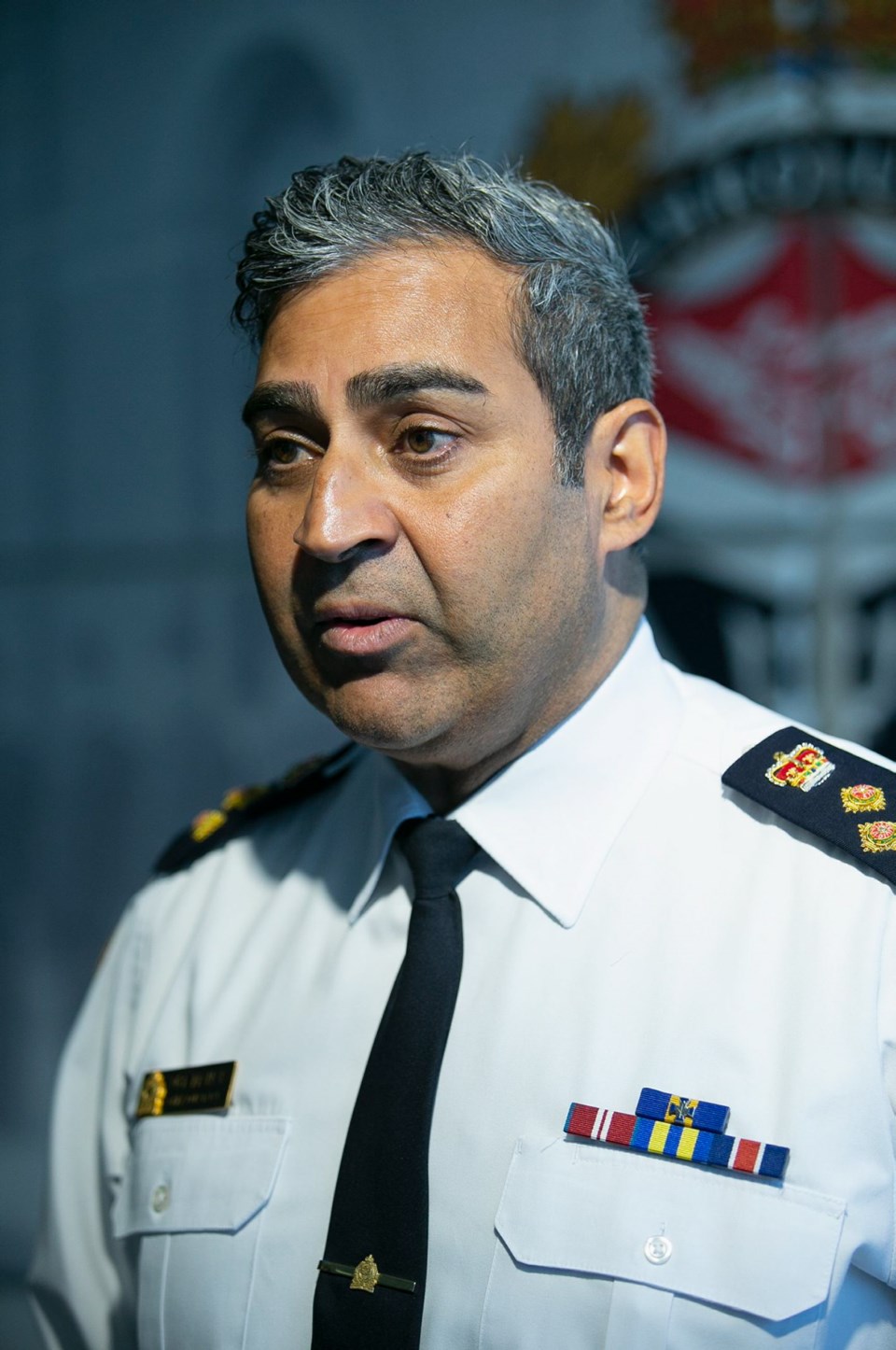People placing non-emergency calls to Victoria police are waiting up to 40 minutes to get through due to delays at E-Comm’s dispatch centre, Chief Del Manak says.
Manak was questioned about the ongoing problems during an appearance before Victoria city council to discuss his department’s 2020 budget.
Coun. Marianne Alto said she and others have been hearing concerns about the length of time it’s taking for people to report incidents.
“Recently, I think we’re all becoming aware that there’s been some frustration around E-Comm and the time it’s taking to respond to some of the calls for service,” she said.
Manak said the issue stems from the switch to E-Comm’s South Island 911 Police Dispatch Centre. Victoria police transitioned its emergency and non-emergency call-taking and dispatch services to the centre on Jan. 22. Saanich and Oak Bay police departments transitioned a week later.
“The transition has been less than smooth and there are some major, major delays, especially the non-emergency line where people are put on hold for sometimes upward of 40 minutes,” Manak told council.
He acknowledged in a later interview that the situation is frustrating for the public.
“Many people are now hanging up and guess where they’re showing up?” he said. “They’re coming down to the police station to say: ‘I can’t get through. But I’ve got this incident I want to report.’ Or: ‘My house got broken into while I was on holidays last week. So my house is safe, but I’ve got stuff all over the place and I’ve got to report because [of] my insurance company.’ ”
He said the situation puts the department’s reputation at risk.
“Of course, the public is getting frustrated with the police because they think it’s us that’s not providing the good service, but it’s actually E-Comm,” he said.
Oak Bay Police Chief Andy Brinton confirmed that his department has been dealing with challenges around wait times for non-emergency calls as well.
“I must say that the overall service from E-Comm has been highly professional and the E-Comm management group have responded to any concerns we have raised,” he said. “We are currently working together to enhance their service to Oak Bay and to address any of the service gaps that may have occurred.”
E-Comm, which is owned by the municipalities and public safety agencies that it serves, dispatches for more than 30 police departments on the Lower Mainland and Vancouver Island.
Jasmine Bradley, E-Comm’s corporate communications manager, said staff respond to both emergency and non-emergency calls.
“Emergency calls are always the priority, which is part of the reason we have seen longer wait times on non-emergency [calls], as our staff focus on helping people who need immediate assistance from police,” she said in an email.
“While we can’t eliminate wait times altogether, our goal is to shorten the time it takes to speak with our call takers, so we can provide the most responsive service possible to the public.”
Bradley said E-Comm is recruiting more staff to help with call volumes, while providing information to the public about how to minimize waits.
The front page of the Victoria police department’s website, for instance, links to a message from E-Comm that states: “We know waiting to report your non-emergency situation can be frustrating.”
The page offers a series of tips for getting speedier service, such as placing non-emergency calls in the early morning or evening, and having your driver’s licence and other relevant information ready when placing a call.
The web page also provides examples of when not to call the police non-emergency number, such as to report a lost passport, power outages or road closures.
Bradley said that of the 138,099 non-emergency calls received by E-Comm on Vancouver Island from January to the end of October, 78 per cent were answered in five minutes or less and 91 per cent in 10 minutes or less.
In terms of emergency 911 calls, Bradley said E-Comm answers 97 per cent of the initial 911 calls in five seconds or less, with the average speed being one second. If the caller asks for police, the operator transfers the call to a police call-taker, who gets the specifics and co-ordinates a response.
“There can be times where a sudden spike in emergency calls can result in callers having to wait longer than normal to speak with a police call-taker,” Bradley said. “It is important to note that if any caller is required to wait for a police call-taker, they are not on the line alone and never on hold, as the 911 operator remains with them on the line the entire time.” If a situation escalates, the operator will alert a supervisor for immediate attention by police units, Bradley said.
The union representing emergency call-takers and dispatchers says E-Comm is “desperately underfunded” as an organization.
“That lack of funding has made it very difficult for us in bargaining to resolve a lot of issues we have, such as excessive overtime, missed breaks, burnout and high attrition,” said Matthew Bordewick, who chairs Emergency Dispatchers of B.C. CUPE Local 873-02.
“But it also has raised concerns about these wait times and the sustainability of this career and wanting to have that proper funding in place to keep providing that excellent service that our 911 operators provide to the public and officers on the road.”
The union has been without a contract for more than 10 months and talks with E-Comm are at an impasse, Bordewick said.



